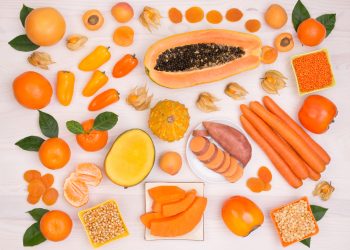Organ meats aren’t just good for us adults. They’re good for children, too! Hundreds of studies and thousands of years of real-world experience speak to the idea that organ meats can nourish a child’s brain, body, and spirit.
Keep reading to learn more about the many benefits of organ meats for children. We’ll also be covering creative ways to incorporate beef organs into your child’s diet — even if they’re a picky eater.
Can Children Eat An Animal-Based Diet?
Yes. Animal-based eating is amazing for children from the moment of conception onward. Even prior to that, animal-based nutrition may promote fertility and safeguard pregnancy.
Children throughout most of human history were raised on nutrient-dense animal products. When Canadian dentist Weston A. Price traveled the world in the 1930s, he found other countries almost uniformly free from dental cavities — with the exception of modernised areas that ate ‘Western’ food.
What was their secret? Traditional diets rich in beef organs, raw dairy products, and fat-soluble nutrients.
Beef organs were especially prized by pregnant women, infants, and children. In times of scarcity organs were preferentially given to these groups; in times of plenty they were enjoyed by all. Regardless of culture, country, or tribe, animal organs and other “sacred” foods were used to promote development. [1]
Modern analysis shows that beef organs are rich in most (if not all) nutrients the developing body needs to thrive. The highlights list includes fat-solubles like vitamins A, D, and K2, water-solubles like vitamins B1, 2, 3, and 12, and unique peptides like BPC-157. [2]
The value of beef organs for health epigenetic development is still seen today. Most children, if given the choice, will prioritise natural animal products over vegetables. Studies affirm that even young infants who are allowed to self-select their own foods choose animal products (including organ meats!) and fruits over other items.
Do Children Even Need Supplements?
The short answer is no. In an ideal world, none of us would need supplements.
In a truly ideal world, parents everywhere would dispense nutrient-dense organ meats to their children like candy, and children everywhere would be brought up to cherish these traditional foods. In an ideal world, both parents and children would regularly consume enough offal (beef liver, beef heart, tripe, sweetbreads, etc) to balance out their muscle meat consumption.
Until reality catches up to such ideals, however, supplements continue to have an important role. It might be worthy of consideration if your child refuses to eat fresh offal.
Grass-Fed vs. Regular Organ Meats
Do your children deserve the best? (If they’re anything like ours they sure do!)
Joking aside, all children deserve the best nutrition possible. And when it comes to selecting the best organ meats, sourcing matters.
Nutritional analysis consistently shows that grass-fed organ meats are higher in beneficial nutrients than their grain-fed counterparts: [3]
- Folate
- Niacin
- Choline
- Vitamin D
- Riboflavin
- Magnesium
- Fatty acids
- Vitamin B6
- Vitamin B12
- Cholesterol
- Healthy fats
- Antioxidants
- Retinol/retinoic acid
- CoQ10 (Coenzyme Q10)
Suffice to say that grass-fed organ meats are a true superfood! In addition to being higher in nutrients, they may be lower in antinutrients and stress-based memories.
Seriously. They say that happy cows make the best milk, and this concept likely extends to cows that contribute to organ meat supplements, too! Though it might sound far-fetched, research implies that the stress an animal undergoes can make or break its nutrition profile.
Said research got its start back in the 50s, when psychologist James McConnell discovered how efficiently certain worm species passed on their memories to the next generation. McConnell’s future experiments got weirder and weirder, but the important thing is what they allowed him to realise: that the peptides present in animal foods may transmit memories and behaviours to the eater. [4]
“People who eat meat from stressed animals are substantially replicating the experiments of McConnell and Ungar,” endocrinologist Ray Peat confirms. “Except that people normally eat a variety of foods, and each type of food will have had slightly different experiences in its last days of life. The old idea, ‘one is what one eats’ has evolved far beyond ideas of simple nutritional adequacy or deprivation […].” [5]
And even if happy, organic cows aren’t more nutrient-dense than their stressed counterparts, they’re still a better option for the environment.
8 Benefits of Organ Meats for Kids
The consumption of organ meats is linked to a wide variety of health benefits. Below are 8 top benefits that may be especially important for children.
- Reduced Stress
- A stronger Immune System
- A Healthier Body Composition
- Focus and Creativity
- Reduced Risk of Disease
- Stabilised Energy Levels
- Reduce nutrient deficiencies
- Healthier Overall Development
1. Reduced Stress
Nobody deserves to feel stressed out or on edge all the time — especially not our children! Sadly, though, poor nutrition can all too easily shift children into a high-stress state that makes optimal development difficult. Beef organs may very well have adaptogenic properties that enable children to thrive within the environments they find themselves in. Meanwhile, the many trace nutrients present in these organs may reduce stress on the cellular level. [6]
2. A stronger Immune System
Nobody likes to see their children sick. Thankfully for all your parents out there, many beef organs have immune-boosting properties. Bone marrow is rich in the same alkylglycerol featured in breast milk, while bone broth is rich in the antiviral amino acid glycine. [7]
In other good news, sweetbreads are an unusually rich source of vitamin C, and thymus is rich in several immune-signaling peptides. [8]
3. A Healthier Body Composition
Even children can struggle with their weight — particularly if they’re on a standard American or standard British diet. But this is yet another area where organ meats may be of value.
Some organ meats, notably beef kidneys, are rich in a pro-metabolic fat called stearic acid. This fat has been correlated with improved mitochondrial function and correspondingly better body composition. “The kidneys are usually given to children,” Arctic explorer Vilhjalmur Stefansson said of the traditional eating habits of the Inuit, “somewhat as if they were candy.” [9]
If your child is struggling with his or her weight, don’t panic. Getting back to homeostasis may be as easy as incorporating some organ meats into their diet.
4. Focus and Creativity
Beef organs nourish a child’s brain, resulting in more focus, creativity, and — possibly — intelligence.
This is especially true of beef brain, which is 60% fat and chock-full of omega-3 fatty acids like DHA and DPA. Studies show that DHA may protect the brain from inflammation, oxidation, and all sorts of other unsavoury stuff. Studies also show that a mother’s DHA consumption plays a role in determining her offspring’s problem-solving capacity. A 2013 study summed up DHA’s pro-development effects this way: [10]
“In animals, low brain DHA results in impaired learning and behavior. In infants, DHA is important for optimal visual and cognitive development.”
5. Reduced Risk of Disease
One of the most amazing things about beef organs is their ability to optimise epigenetic development. Translation? Regular consumption of organ meats may help you live up to your genetic potential.
The nutrient deficiencies caused by not consuming organ meats, on the other hand, can cause suboptimal epigenetic expression. This leads to less genetically-healthy offspring, who then pass those new genes in what must be the prototypical vicious cycle.
For an example of just how quickly things can escalate, look no further than Dr. Francis Pottenger’s experiments. In 1903 Dr. Pottenger and his brothers opened up a medical clinic that specialised in treating tuberculosis. He suspected that TB was being caused by nutrient deficiencies, so he decided to test the hypothesis on cats. Pottenger fed one group of cats pasteurised milk and cooked meat and fed the other group raw milk and raw meat. Four generations of cats later, the differences between each group were striking. [11]
The raw food cats had bigger, stronger bones, bigger, healthier babies, and no dental issues. The cooked-food cats, on the other hand, had difficult births, weak skeletal structures, and frequent infections.
The most shocking part of all this? The human race has become much like the sickly cats involved in Pottenger’s experiments. We’ve been eating processed, nutrient-devoid food for well over four generations — and it shows in our health. More people today suffer from chronic disease than at virtually any other point in human history.
But Pottenger’s cats also provide us with a glimmer of hope. Pottenger found that raw liver and other raw foods were able to slowly reverse the deterioration seen in the sickly cats.
6. Stabilised Energy Levels
Children need to have plenty of energy…just as long as it’s not the bouncing-off-the-wall, peak-and-valley type of energy caused by sugar consumption.
Thankfully for all of your parents of school-age children, beef organs may provide exactly that. They’re known to provide one’s mind, muscles, and mitochondria with steady, slow-burning fuel. Well-nourished children are happy children!
7. Reduce nutrient deficiencies
Organ meats have always been an important part of a child’s diet, but they might be even more important in modern times. That’s because our earth’s soil has been depleted of the trace nutrients (selenium, magnesium, etc) it once contained. Fruits and vegetables just aren’t as nutritious as they used to be.
Organ meats could be a viable solution. To this day they remain one of nature’s best multivitamins. Rich in a huge variety of essential nutrients, organ meats can round out a child’s nutrient intake and reduce the risk they develop deficiencies. Organ meats are also one of the few solid sources of what Dr. Weston Price called activator X — but more on that next.
8. Healthier Overall Development
Activator X may be the single most important nutrient for healthy child development.
What is it? Modern analysis shows that the activator X Dr. Price described is none other than vitamin K2. While K2 is found in many traditional foods (organs, raw dairy, fermented food, etc), it’s not found in very many modern ones — meaning our children may tragically be missing out. Studies show that K2 may: [12]
- Promote bone growth and strength
- Improve energy and endurance
- Promote healthy jaw formation
- Shuttle calcium into bones
- Prevent/reverse cavities
- Strengthen teeth
- Whiten teeth
…and much, much more. While there’s currently no RDV established for vitamin K2, children who eat beef organs and traditionally-made dairy products are almost certainly getting enough of it.
How to Get Your Children to Enjoy Eating Organ Meats
Feeding animal organs to your children may seem daunting, especially at first. The truth, though, is that it doesn’t really have to be. Below are some tips to make your child’s transition to ancestral eating as smooth as possible:
- Get them started early. Many children can begin eating organ meats at just one or two years old.
- Be a role model. Don’t forget that children absorb information like sponges. If they see you eating and enjoying organ meats, they probably will too!
- Get creative with your cooking. You may be able to mask the taste of beef organs by making liver pate, liver-infused meatballs, Menudo soup, or any of the countless other recipes available.
- Don’t feel pressured to overdo things. Most children only need to eat organs like liver once a week (eating too much liver can lead to vitamin A toxicity).
And if you’ve tried all you can try and your children still don’t enjoy organ meats, don’t sweat it. Simply empty half of a Beef Liver Capsule or Beef Organ Capsule into any of their favourite foods (yogurt is a tasty, easily-mixed option).
The Benefits of Organ Meats for Children: Summing Things Up
It wouldn’t be an exaggeration to say that introducing organ meats into your child’s diet could be life-changing.
There’s a reason every traditional culture gave its pregnant mothers and young children these sacred foods. And, if the findings of Price, Pottenger, and countless others are any indication, these benefits still hold true today. Getting your children acquainted with organ meats now might ensure they grow up to be big, strong, and healthy in the long run!
Even if all else fails and your child absolutely refuses to give offal a try, consider the role of organ meat supplementation. Our organ meat capsules place the power of nose-to-tail eating into a convenient package that children — and adults, of course — can enjoy.








